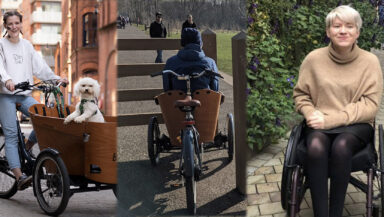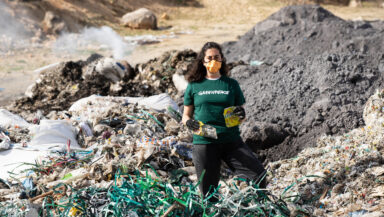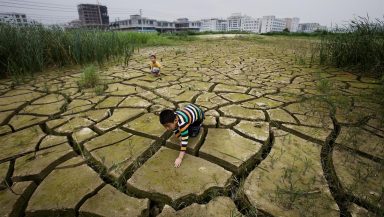Many disabled people have a complex relationship with plastic, and the recent push to cut down on plastic waste. Plastic products can be a literal lifesaver for some, and provide essential comfort, independence and dignity for many more.
But anti-plastic campaigns often overlook these needs, leaving millions of people feeling excluded from a cause that they have a huge stake in.
Disabled people often suffer most from the environmental problems caused by plastic, and can help shape solutions that work better for everyone.
This comic, from illustrator and disability activist Ananya Rao-Middleton explores these questions through a conversation between friends.
Can’t see these pictures clearly? Read a transcript instead.
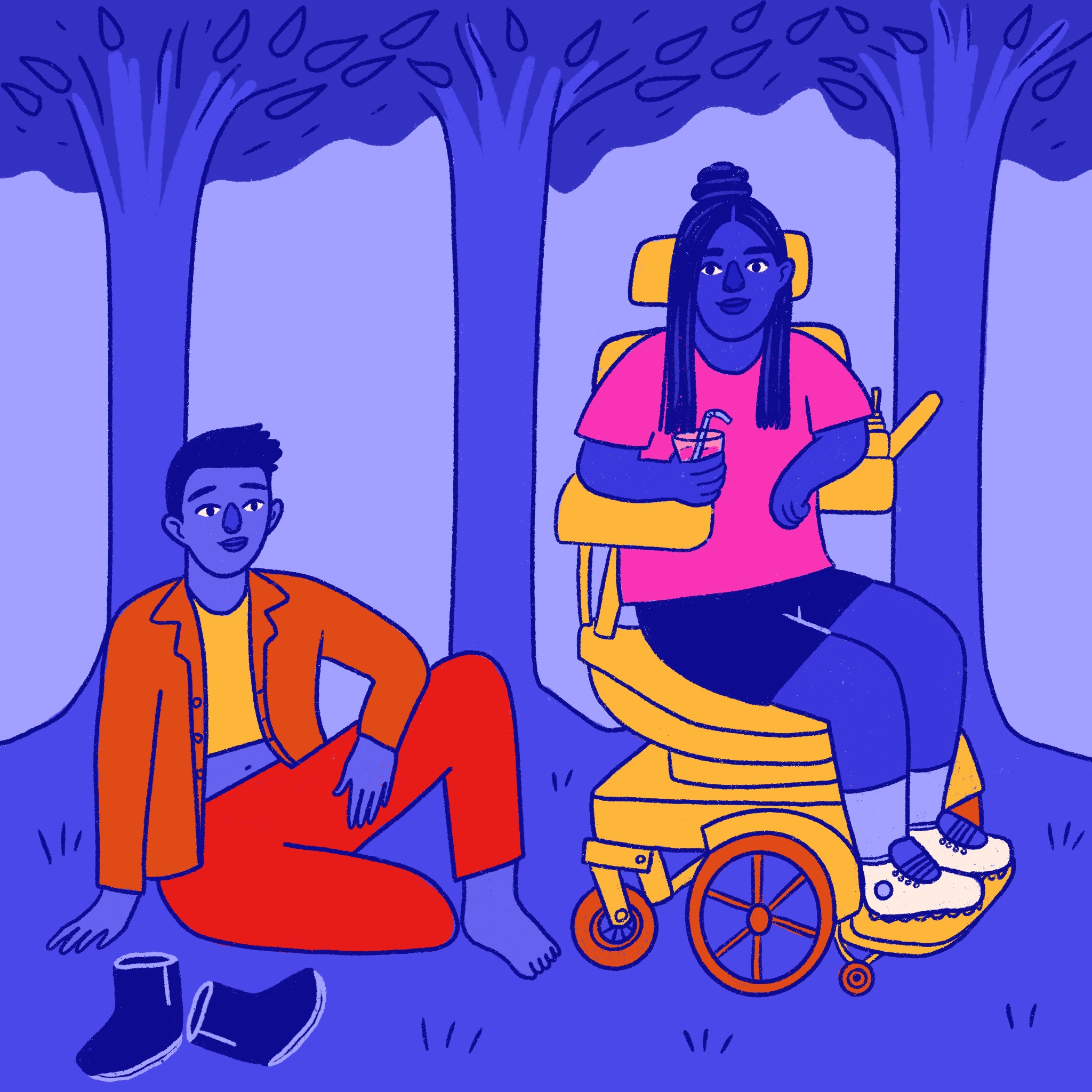
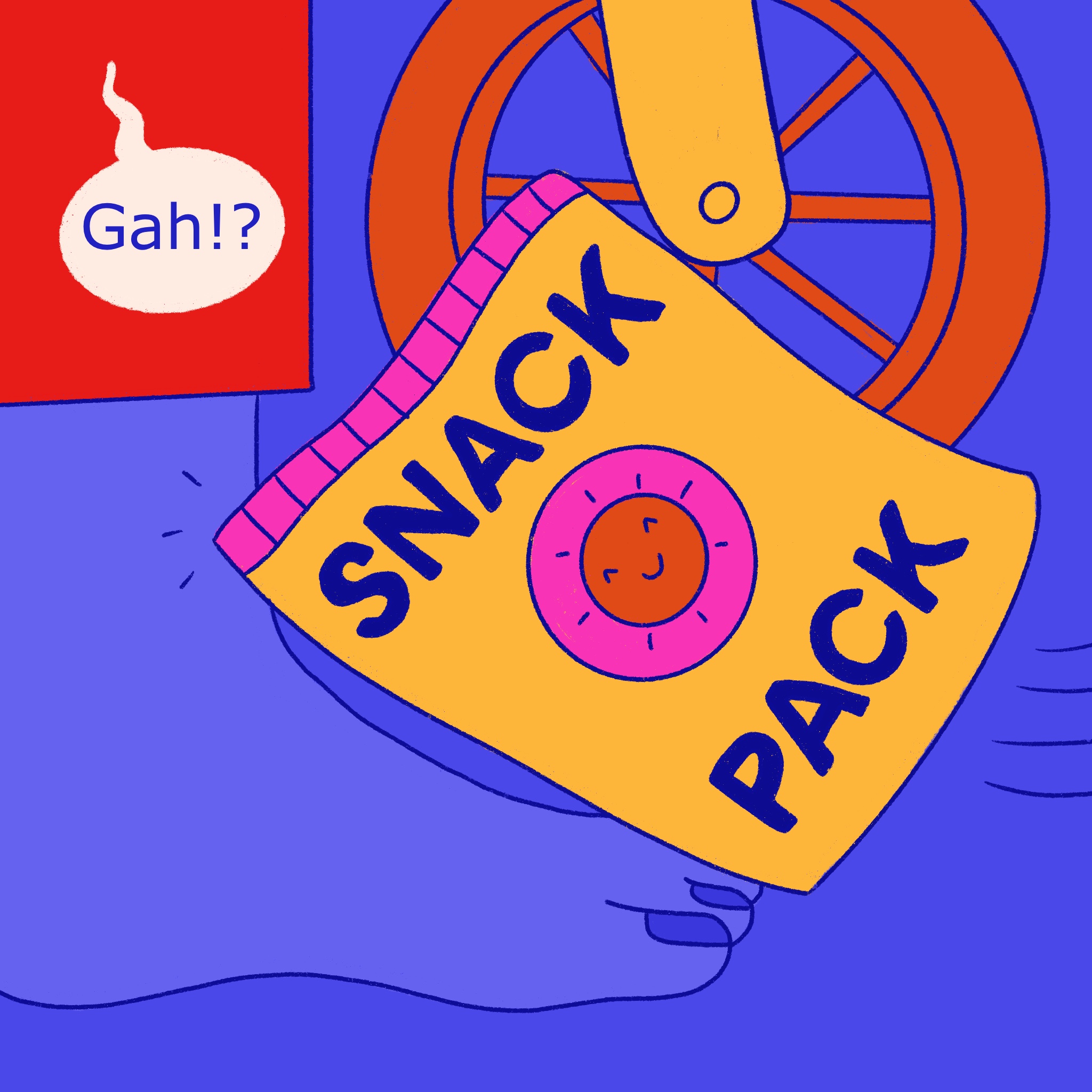
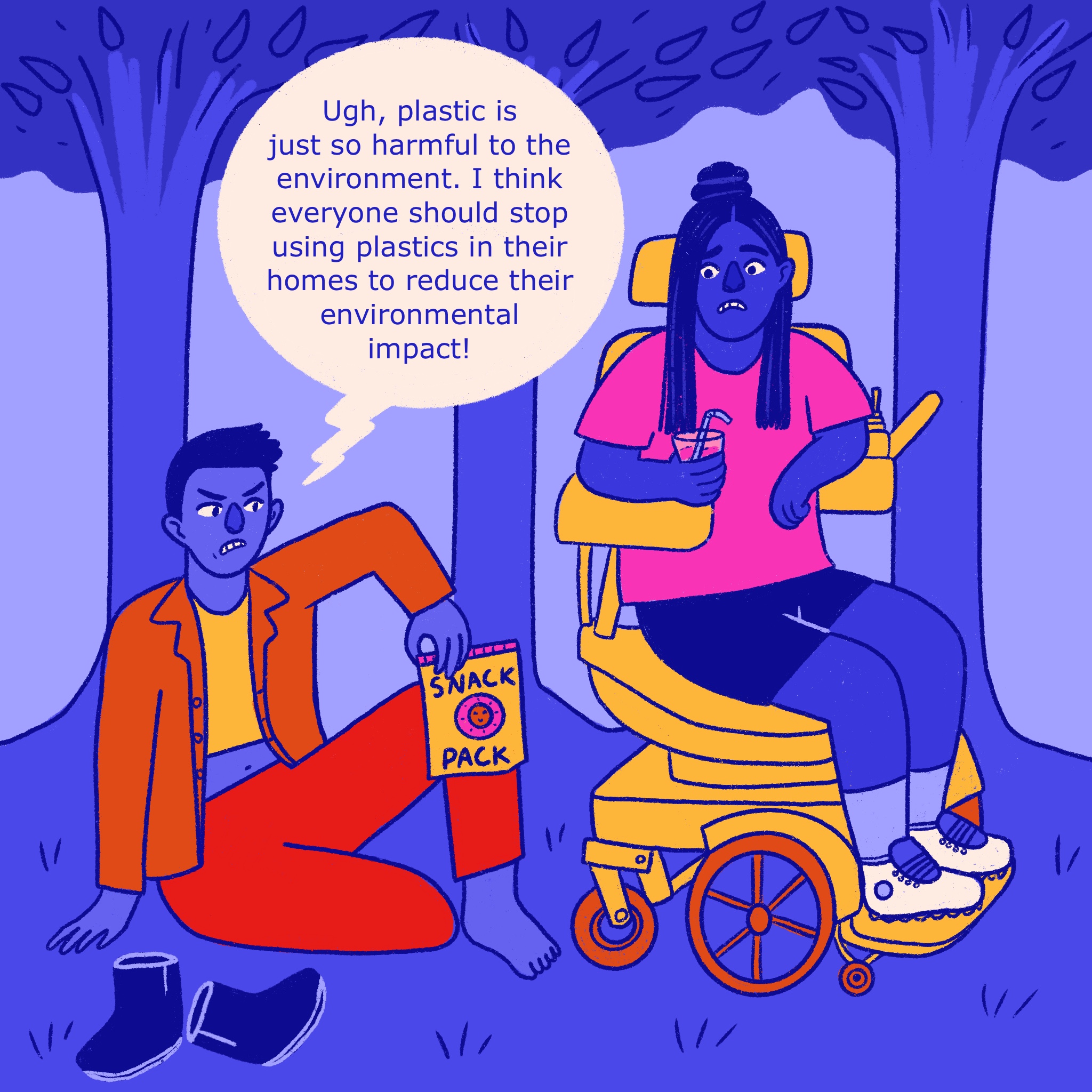
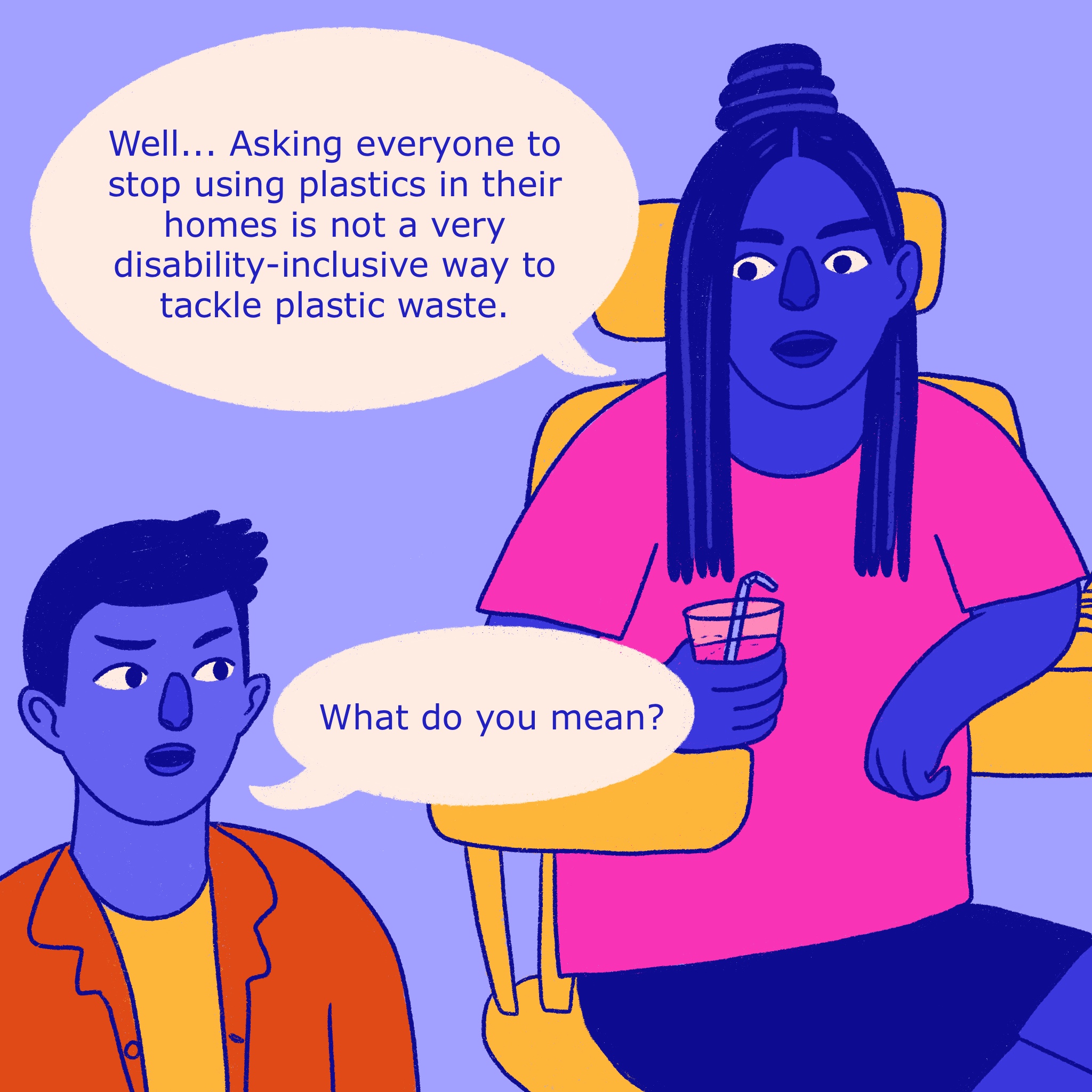
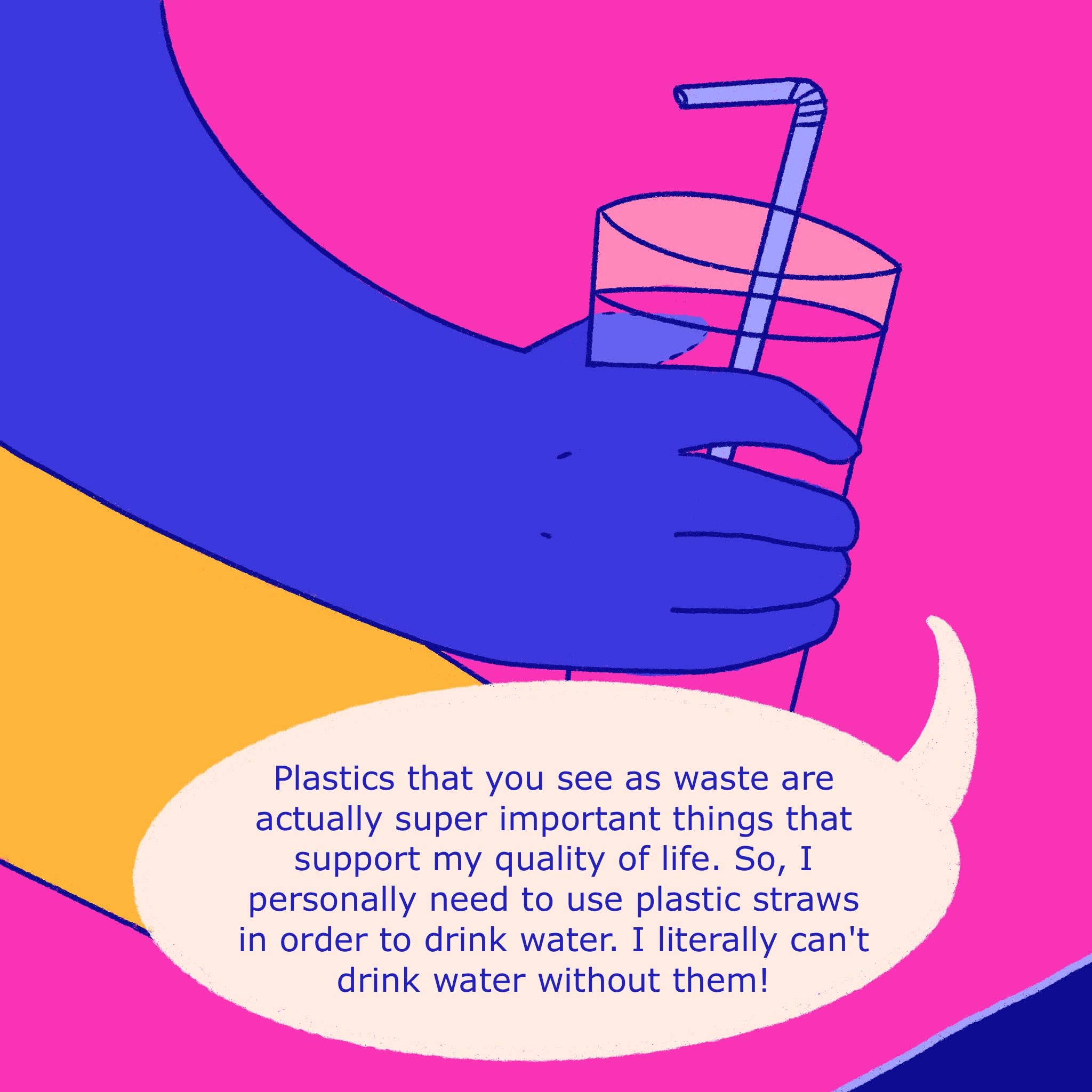
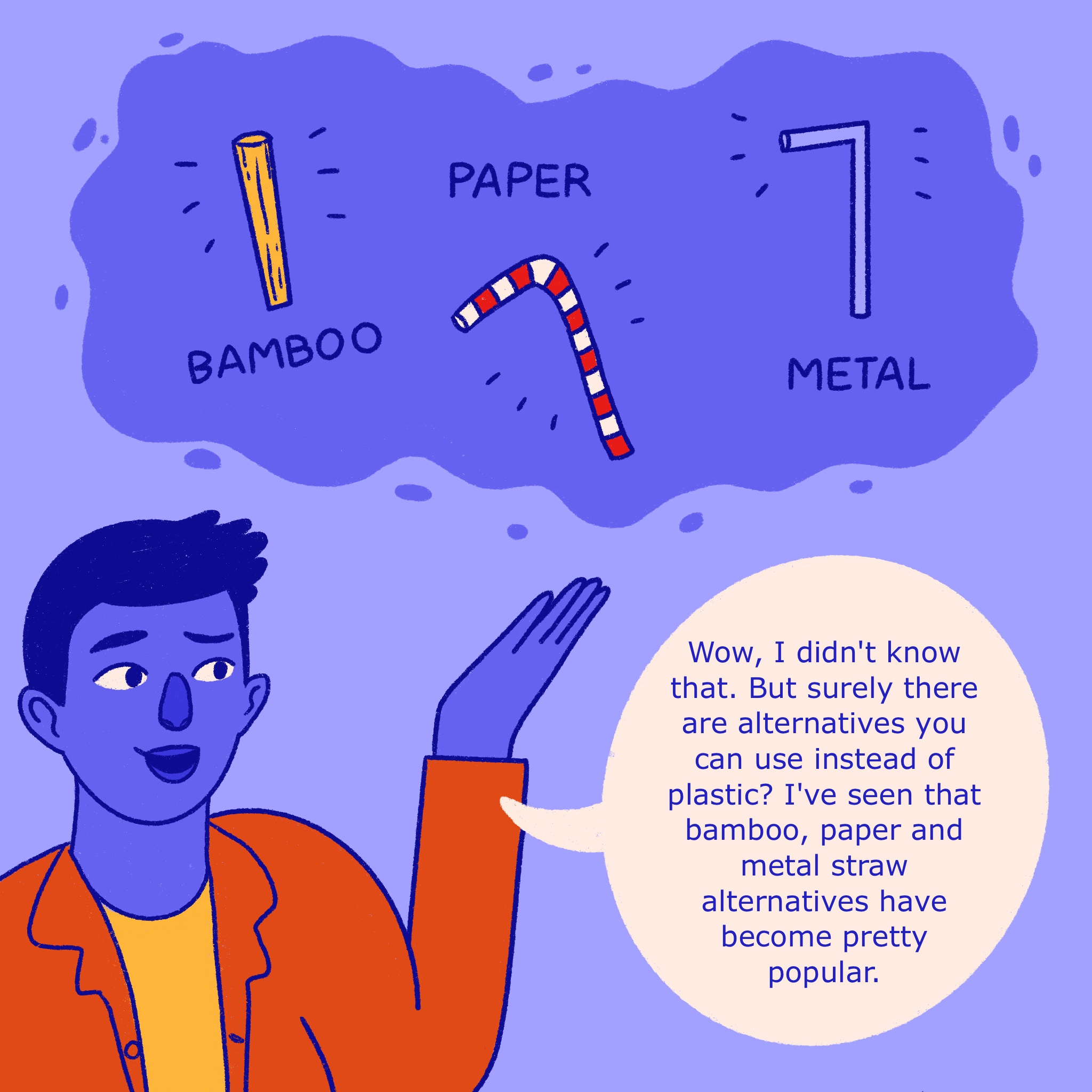
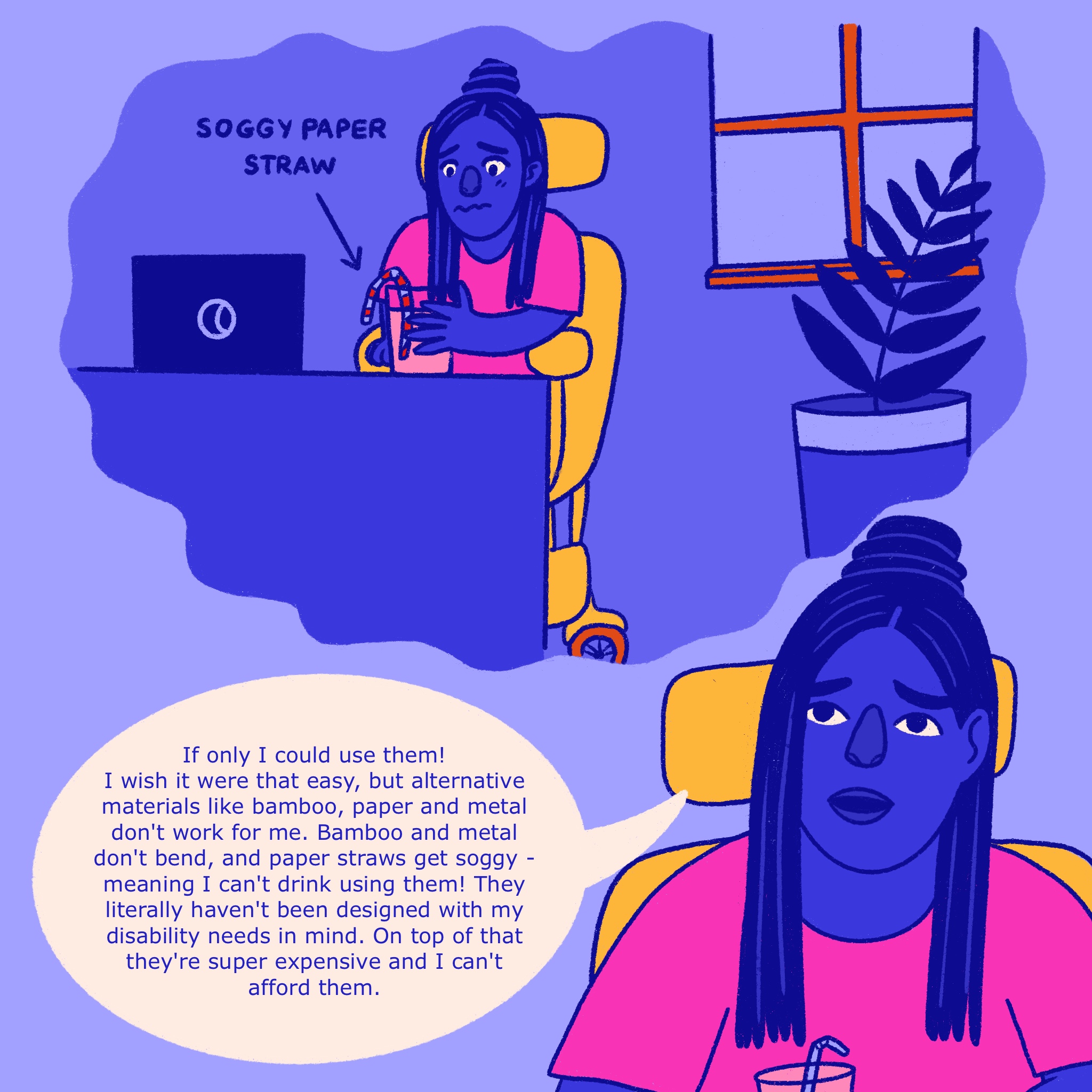
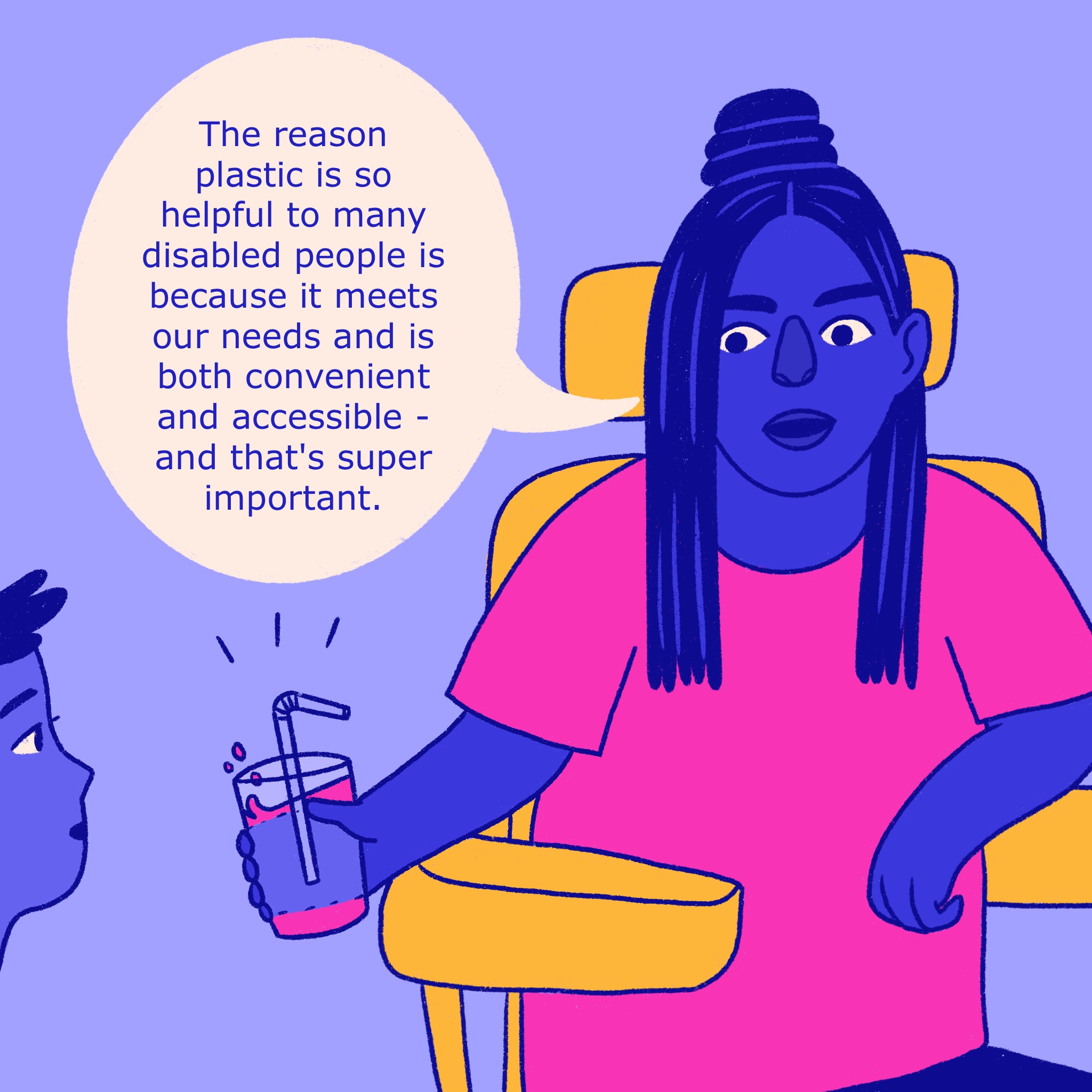
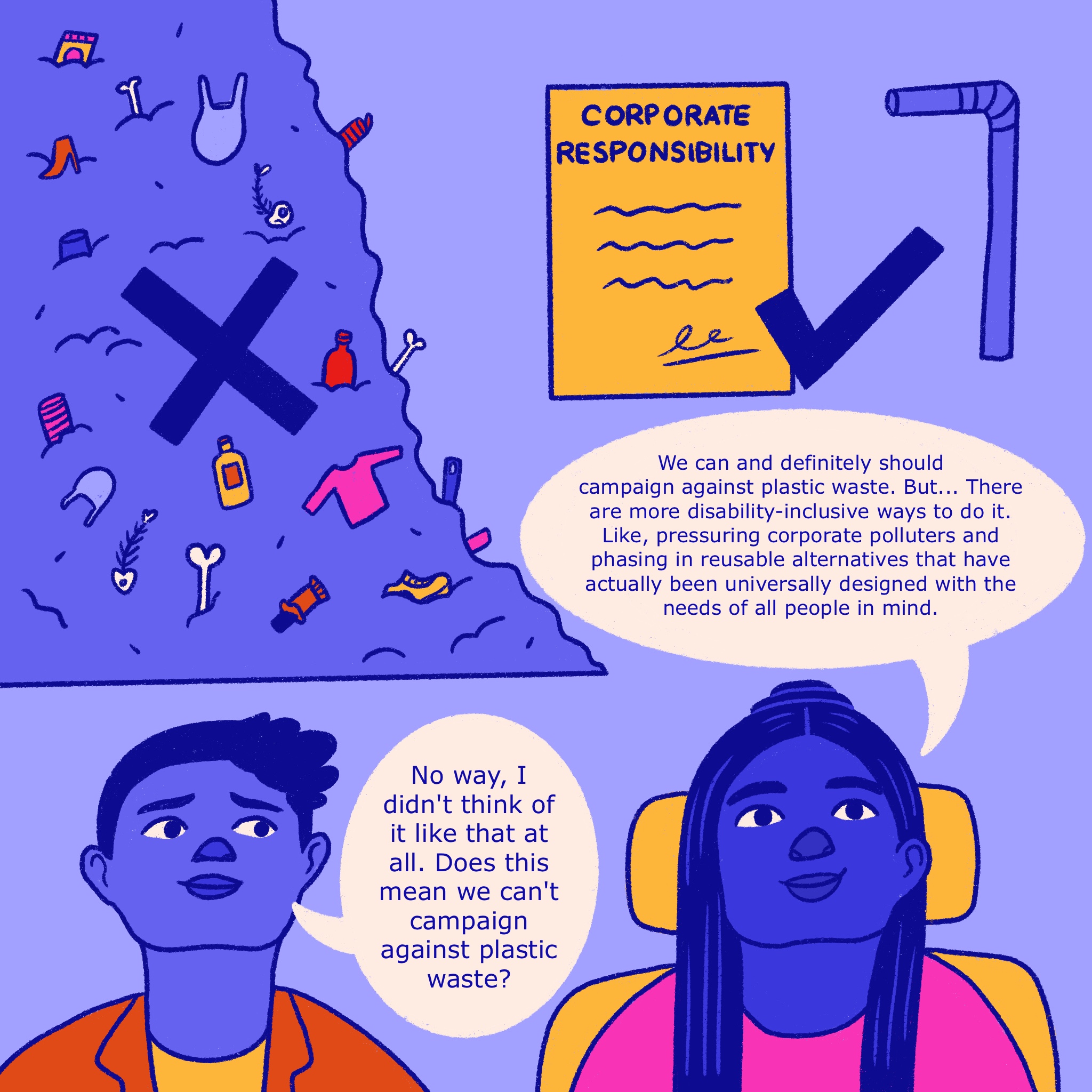
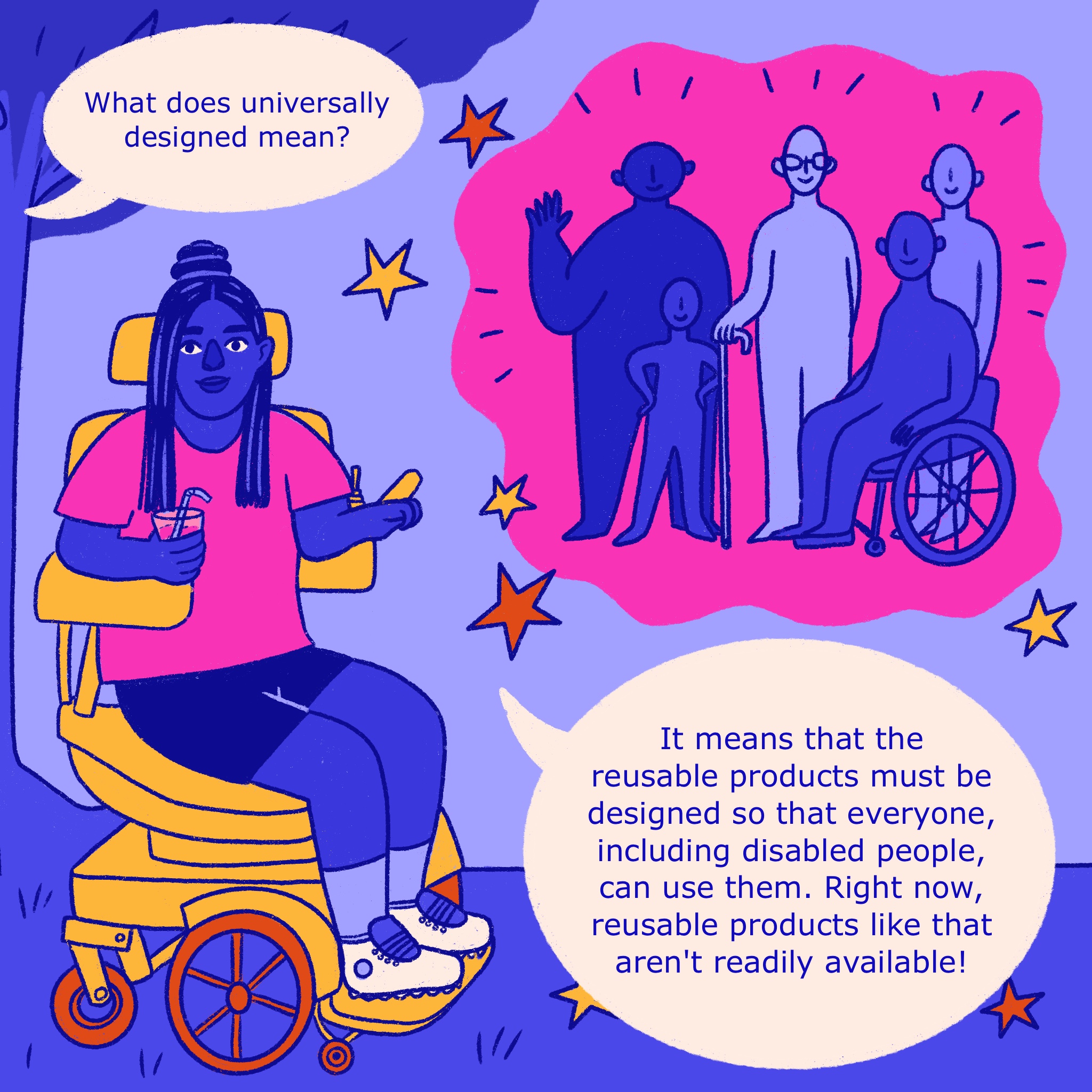
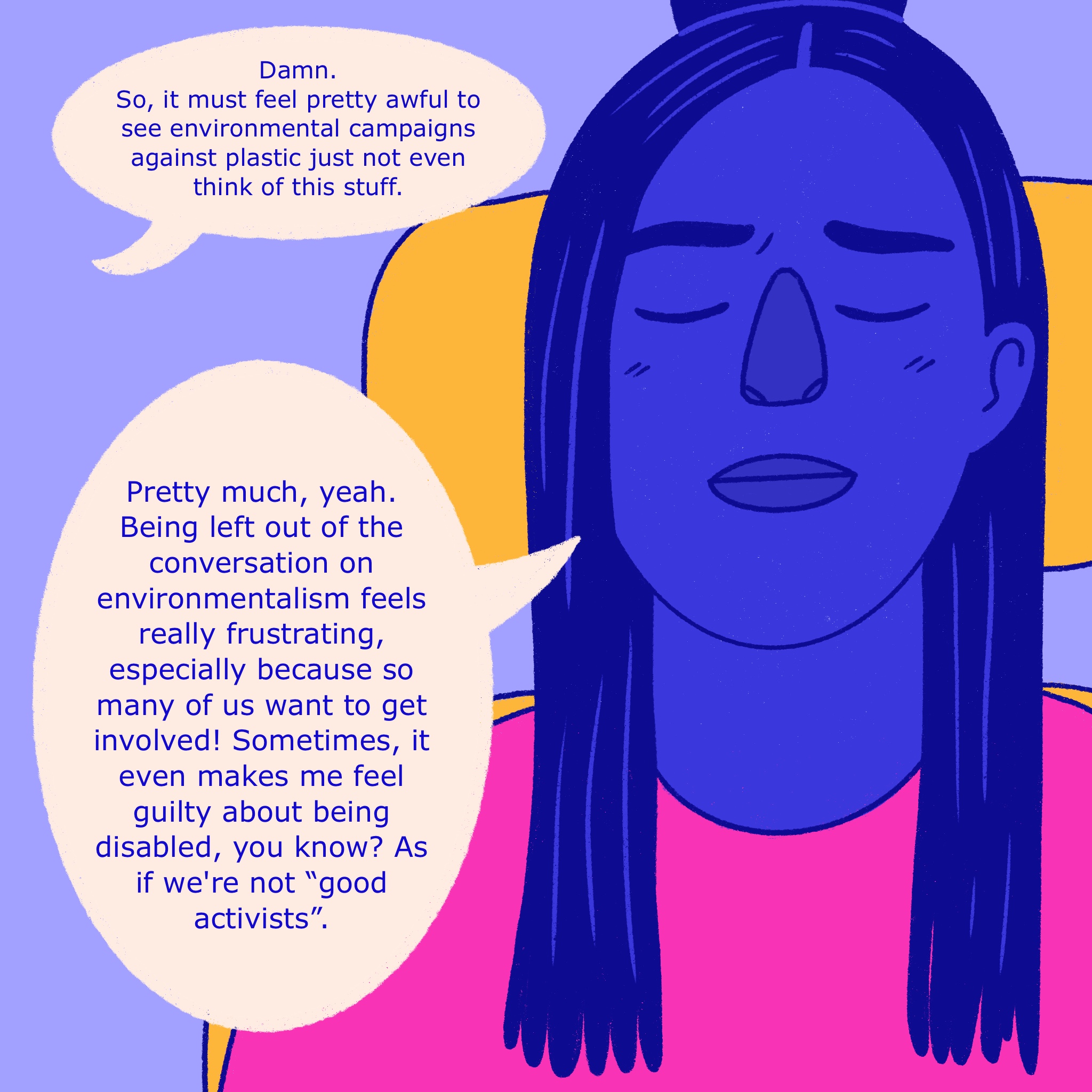
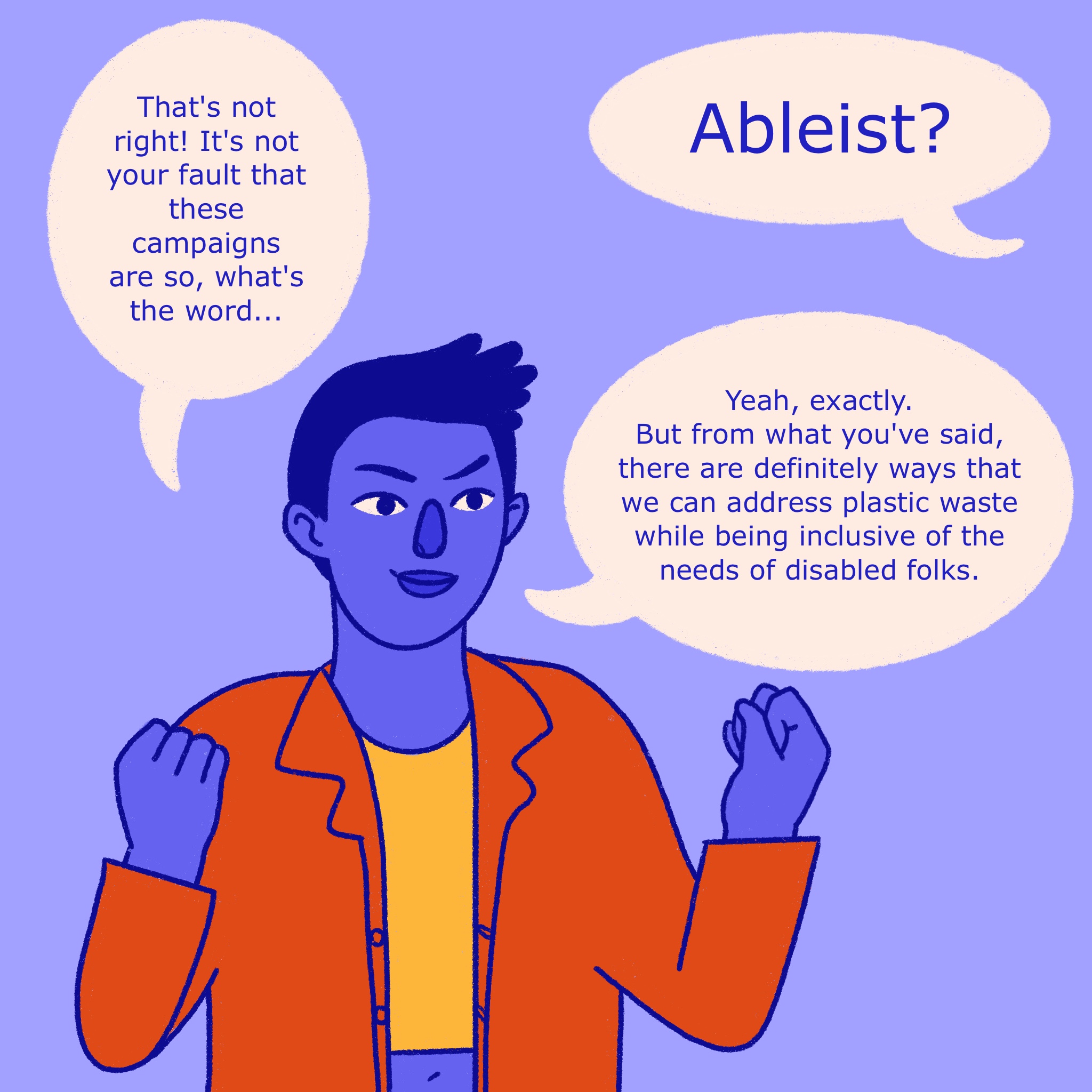
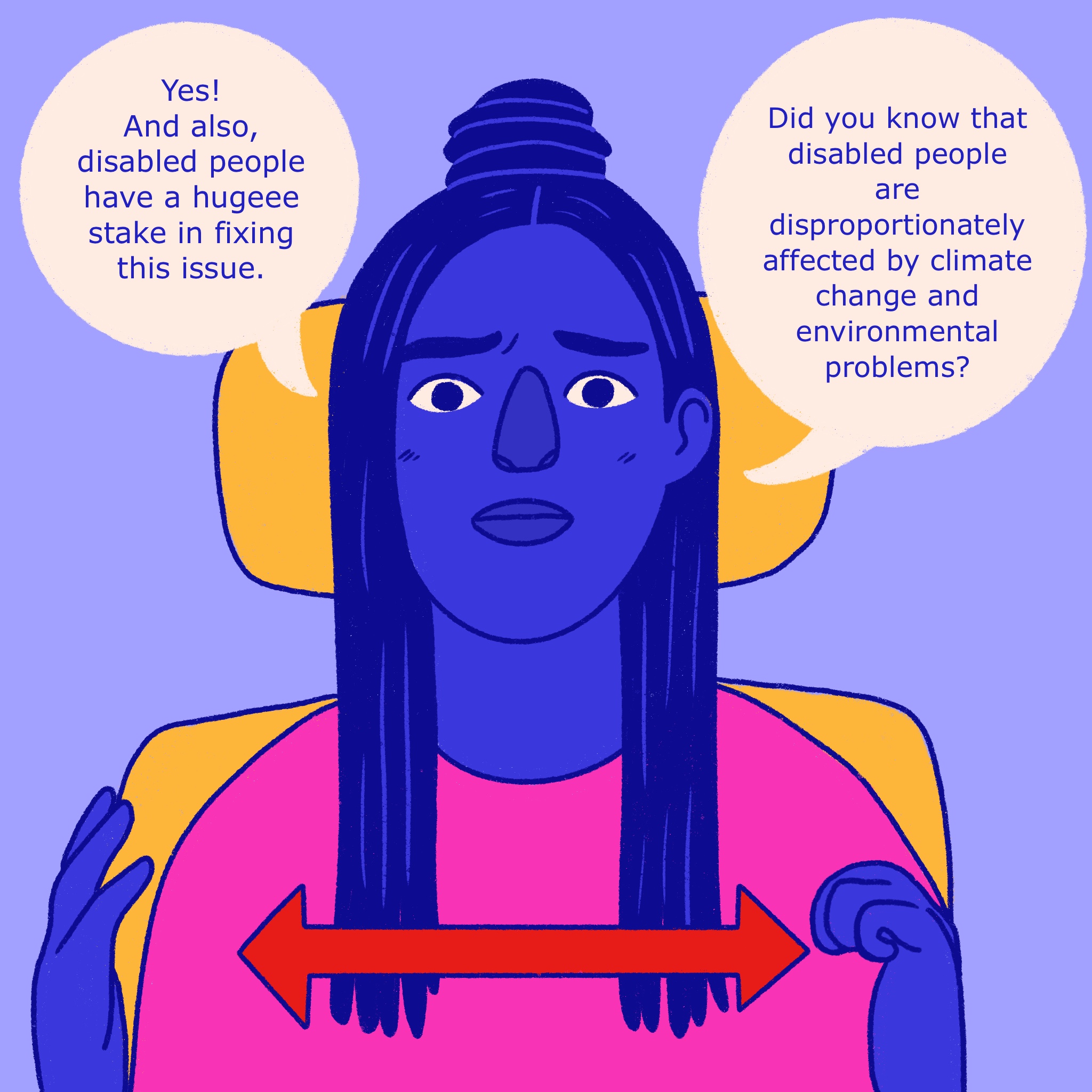
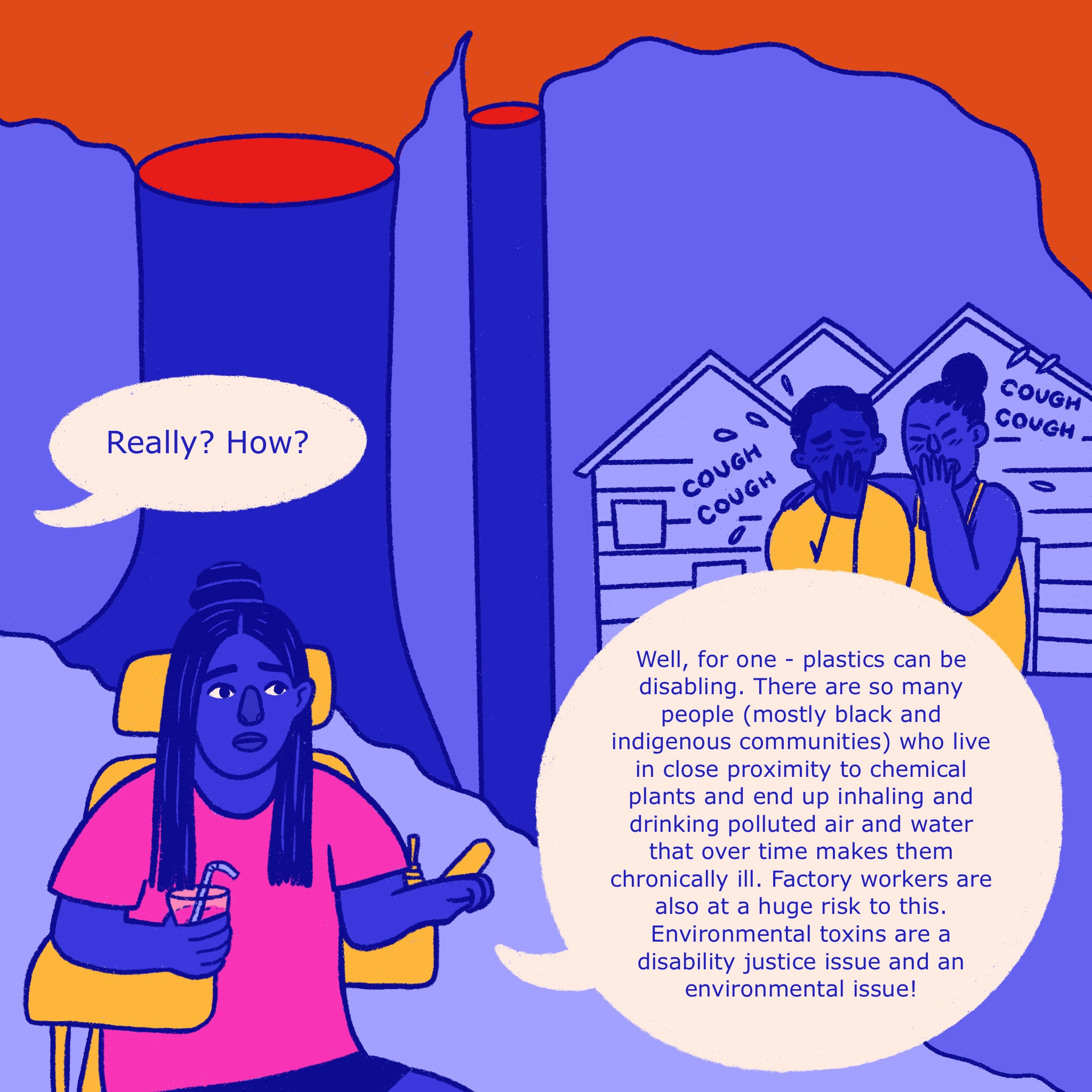
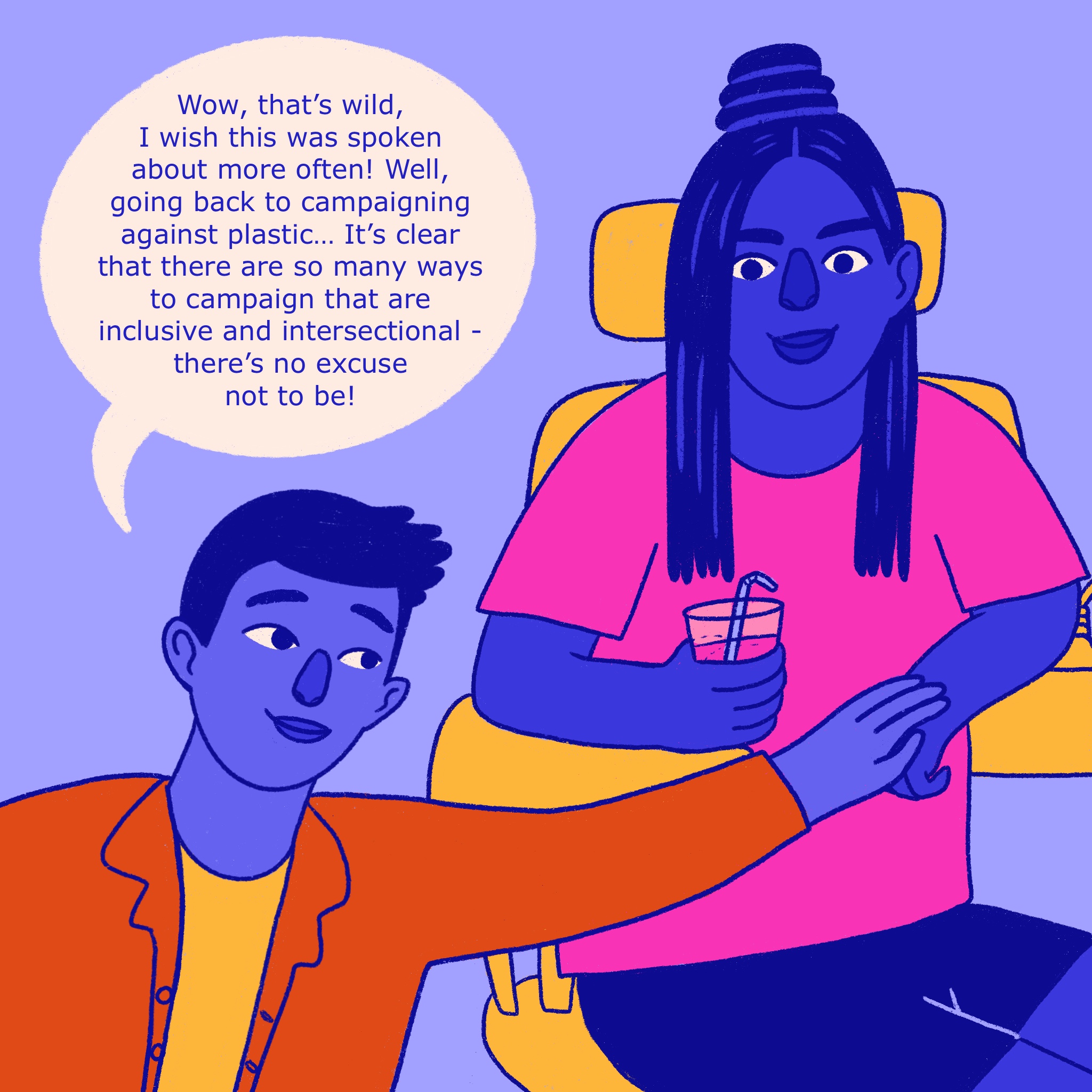
Transcript
Two people sit in a park. One is in an electric wheelchair, the other sits on the grass with their shoes off.
A plastic ‘snack pack’ wrapper blows into the non-disabled person’s leg.
The non-disabled person picks up the wrapper.
Non-disabled person: Ugh, plastic is just so harmful to the environment. I think everyone should stop using plastics in their homes to reduce their environmental impact!
The two friends look at each other.
Disabled person: Well… Asking everyone to stop using plastics in their homes is not a very disability-inclusive way to tackle plastic waste.
Non-disabled person: “What do you mean?
The disabled person’s hand sits on a wheelchair armrest holding a drink with a plastic straw.
Disabled person: Plastics that you see as waste are actually super important things that support my quality of life. So, I personally need to use plastic straws in order to drink water. I literally can’t drink water without them!
The non-disabled person gestures towards a thought bubble showing bamboo, paper and metal straws.
Non-disabled person: Wow, I didn’t know that. But surely there are alternatives you can use instead of plastic? I’ve seen that bamboo, paper and metal straw alternatives have become pretty popular.
The disabled person looks up at a thought bubble showing them struggling to use a soggy paper straw.
Disabled person: If only I could use them! I wish it were that easy, but alternative materials like bamboo, paper and metal don’t work for me. Bamboo and metal don’t bend, and paper straws get soggy – meaning I can’t drink using them! They literally haven’t been designed with my disability needs in mind. On top of that they’re super expensive and I can’t afford them.
The disabled person shows their cup with the plastic straw to the non-disabled person.
Disabled person: The reason plastic is so helpful to many disabled people is because it meets our needs and is both convenient and accessible – and that’s super important.
Both look up at a pile of plastic waste and a document labeled ‘Corporate responsibility’.
Non-disabled person: No way, I didn’t think of it like that at all. Does this mean we can’t campaign against plastic waste?
Disabled person: We can and definitely should campaign against plastic waste. But… There are more disability-inclusive ways to do it. Like, pressuring corporate polluters and phasing in reusable alternatives that have actually been universally designed with the needs of all people in mind.
The disabled person points at a thought bubble with a group of people with different body shapes smiling and waving. One is in a wheelchair. Another stands with a walking stick and wears glasses.
Non-disabled person: What does universally designed mean?
Disabled person: It means that the reusable products must be designed so that everyone, including disabled people, can use them. Right now, reusable products like that aren’t readily available!
The disabled person has closed eyes and a serious expression.
Non-disabled person: Damn. So, it must feel pretty awful to see environmental campaigns against plastic just not even think of this stuff.
Disabled person: Pretty much, yeah. Being left out of the conversation on environmentalism feels really frustrating, especially because so many of us want to get involved! Sometimes, it even makes me feel guilty about being disabled, you know? As if we’re not “good activists”.
The non-disabled person stands with fists clenched and raised to shoulder level, looking motivated and ready for action.
Non-disabled person: That’s not right! It’s not your fault that these campaigns are so, what’s the word…
Disabled person: Ableist?
Non-disabled person: Yeah, exactly. But from what you’ve said, there are definitely ways that we can address plastic waste while being inclusive of the needs of disabled folks.
The disabled person makes the open hand gesture used to convey the size of something.
Disabled person: Yes! And also, disabled people have a hugeee stake in fixing this problem. Did you know that disabled people are disproportionately affected by climate change and environmental problems?
The disabled person looks at a thought bubble showing people outside their homes, coughing violently. A nearby smokestack and cooling tower are pouring out pollution.
Non-disabled person: Really? How?
Disabled person: Well, for one – plastics can be disabling. There are so many people (mostly black and indigenous communities) who live in close proximity to chemical plants and end up inhaling and drinking polluted air and water that over time makes them chronically ill. Factory workers are also at a huge risk to this. Environmental toxins are a disability justice issue and an environmental issue!
The non-disabled person, now sitting back on the ground, reaches up and touches the disabled person’s hand. The disabled person looks back with a smile.
Non-disabled person: Wow, that’s wild, I wish this was spoken about more often! Well, going back to campaigning against plastic… It’s clear that there are so many ways to campaign that are inclusive and intersectional – there’s no excuse not to be!
You can follow Ananya on Instagram and Twitter. Guest authors work with us to share their personal experiences and perspectives, but views in guest articles aren’t necessarily those of Greenpeace.

